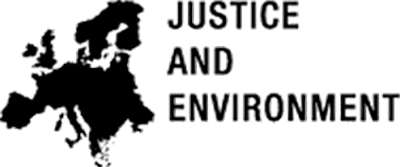A democratic tool to protect the environment
Access to justice is a democratic tool to protect the environment and reduce the gap between the law and its implementation.
EU environmental policy and regulation is one of the most advanced and comprehensive in the world, but it is not providing satisfactory results and Europe’s environment is rapidly deteriorating. For example, the EU is set to miss its goal of halting biodiversity loss for 2020 – with 60% of EU protected species and 77% of EU protected habitats being in unfavourable conservation status according to a 2015 EEA report.
Strong legislative and policy frameworks are not providing the results that they should because they are not properly implemented. This is both an environmental and socio-economic problem: a 2011 estimate put the cost of poor implementation of EU environmental law at around €50 billion a year. Not to mention that the lack of implementation also erodes the rule of law and public trust in national authorities and the EU.
To tackle that issue, empowered citizens, acting on their own or via charities, are essential to support the actions of authorities. For their action to be truly effective, they need to be able to challenge lawbreaking in court.
A right acknowledged in a number of legal provisions
The right to have access to justice is acknowledged in a number of legal provisions as well as case law of various judicial and quasi-judicial bodies at international and EU level.
The UNECE Convention on Access to Information, public participation in Decision-making and Access to justice in Environmental matters (Aarhus Convention) requires its parties to provide members of the public with effective access to justice in environmental matters. As of today, all 27 Member States as well as the EU itself are Parties to the Convention.
Moreover, based on this Convention, the EU has adopted a number of legal acts containing rules on access to justice at national level, such as the Environmental Information Directive, Environmental Impact Assessment (EIA) Directive, Industrial Emissions Directive (IED) and the Environmental Liability Directive (ELD).
The EU has not yet issued legislation that would provide a general framework for access to justice to challenge all infringements of environmental laws. However, the Court of Justice of the European Union (CJEU) has ruled that Member States are nonetheless obliged to interpret their existing national laws in line with the requirements of the Convention.
This general legal framework has been further clarified by a strong body of case-law of both the CJEU and the quasi-judicial Aarhus Convention Compliance Committee (ACCC), which has provided important criteria for assessing whether access to justice provided can be considered to be truly effective.

















